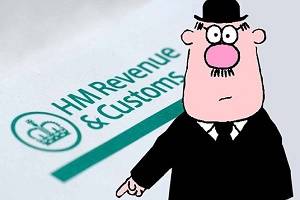APPEALING A TAX DECISION: In most cases contacting HM Revenue and Customs is the first step to take. You can make tax appeals on decisions relating to:
- A claim for tax relief.
- A tax bill (e.g. Corporation Tax, Self Assessment, and VAT).
- A tax penalty (e.g. for filing a late tax return or sending a late payment).
- A request to check business records or tax affairs.
HMRC can help if you want to question a tax decision or cannot understand it.
You can also get tax help and advice from a professional adviser or an accountant. They can conduct tax appeals on your behalf.
Once you contact HMRC they will send a decision letter to you. The letter informs you whether you can make an appeal against a tax decision or not.
As a rule you will have to pay your own costs for tax appeals on decisions. In some cases you can delay payment of a penalty or extra tax fees until the appeal gets resolved.
If HMRC Failed to Act on Information
There may be times when HM Revenue and Customs did not act on information given to them. In most cases, this type of information usually comes from you (the taxpayer), the DWP, or your employer.
But, you can make a request to cancel the amount you owe them on ‘direct taxes’. It would apply if HMRC didn’t act on information they were given, such as:
- Capital Gains Tax
- Income Tax (e.g. because of incorrect tax codes)
- Class 4 National Insurance contributions
How to Make a Tax Appeal
There are two ways of appealing a tax decision once HM Revenue and Customs confirm that you can appeal. The decision letter contains an appeal form. You can either use this form or write to HMRC. Their address will be on the letter.
 As a rule you have 30 days to make a tax appeal. There is some specific details and information you need to include:
As a rule you have 30 days to make a tax appeal. There is some specific details and information you need to include:
- Your full name or the name of the business.
- Your tax reference number (found on the decision letter).
- What decision you disagree with and why.
- What you believe the correct figures should be and your method used to calculate them.
- Your signature on the form or letter.
This is also the time to inform HMRC of any extra information related to your claim. Let them know if you feel they missed some important information about your tax affairs.
There is a different process to appeal against a tax decision on ‘indirect taxes‘. Some examples of indirect tax include Value Added Tax, customs duty, and excise duty. You would need to request a review by HMRC or in some cases you can make an appeal to the tax tribunal.
HMRC usually offer a review once you have appealed. The same applies if you requested one for an indirect tax issue. HM Revenue and Customs will inform you of the next steps to take in the process.
As a rule, it takes around 45 days for HMRC to conduct a review after appealing. They will contact you if they need more time. Reviews get carried out by people who were not involved in original decisions.
Disagree with HMRC Review
There may be times when you disagree with HM Revenue and Customs review. In this situation you can either:
- Request the tax tribunal to hear your appeal. You would need to ask them within 30 days of getting your review decision.
- Consider using alternative dispute resolution to find a solution. The GOV.UK publication has further guidance on Alternative Dispute Resolution. ADR is a different method of dealing with tax disputes with HM Revenue and Customs.
ALSO IN THIS SECTION
Appeal Against a Penalty
There are several reasons why HM Revenue and Customs issue tax penalties. The guide explains how to appeal against a penalty and the deadlines for doing so.
Delay Payment during an Appeal
HMRC rules allow payment delays on direct and indirect taxes during an appeal. Find out how to delay paying a tax bill or a tax penalty while you disagree the amount.
Reasonable Excuses
You may need a ‘reasonable excuse’ to appeal against a tax penalty handed out by HMRC. In some cases, having reasonable excuses might be justification for sending late returns or payments.
Anghytuno â Phenderfyniad Treth
The advice and information of the tax appeals help guide is also available in Welsh language (Cymraeg).

